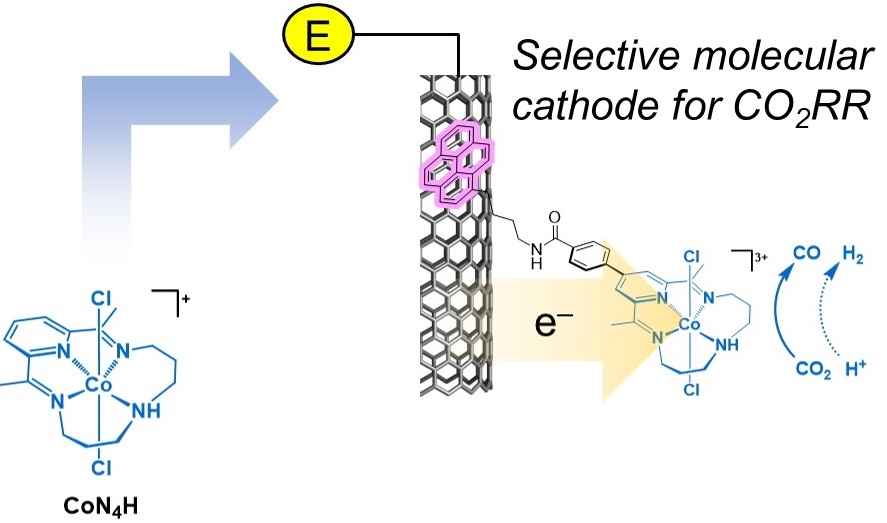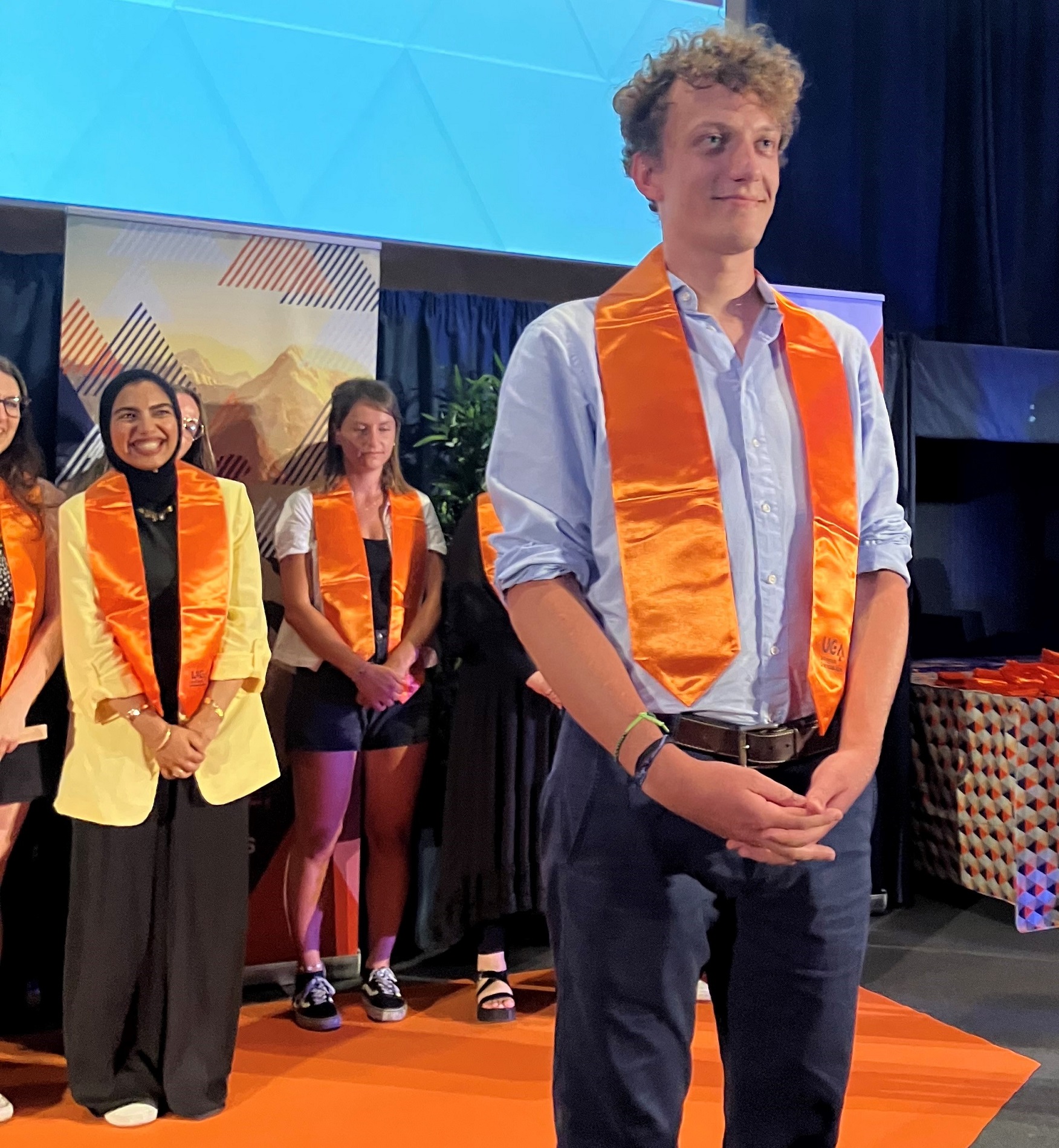 Matthieu HAAKE was awarded the 2025 Academic Thesis Prize for his research work among PhDs graduating in 2024.
Matthieu HAAKE was awarded the 2025 Academic Thesis Prize for his research work among PhDs graduating in 2024.
Thesis: Development of a Co-based molecular engineered cathode for CO2 reduction: From the fundamental study of a grafted catalyst to electrolyser integration.
While carbon dioxide (CO2) is the main greenhouse gas responsible for climate change, it is also foreseen as a key building block for the production of carbon-based fuels, chemicals and materials needed in a post-fossil society. To achieve this transition, we need to develop catalytic processes able to convert CO2 into valuable base chemicals while using only renewable energy sources. These catalytic systems have to be selective,
i.e. producing a single CO2-conversion product while avoiding any competitive production of hydrogen from water electrolysis.
With other researchers from the laboratory,
Matthieu Haake has shown that immobilizing a molecular cobalt complex at a carbon nanotube-based electrode generates a catalytic material for the conversion of CO2 into CO with a selectivity above 90%, the remaining 10% being hydrogen. This system is efficient and stable, with more than 20,000 catalytic cycles achieved in 2 hours without any loss of activity. This CO/H2 mixture, called syngas, is a key intermediate for the synthesis of a wide variety of products such as alcohols and hydrocarbons.

Image: chemical structure of the macrocyclic cobalt catalyst and schematic presentation of the molecular cathode and photocathode materials developed at LCBM/SolHycat. © CEA
In recent years, the
SolHyCat team at LCBM has developed various molecular catalytic centres for the electrocatalytic reduction of CO2. The researchers have shown that immobilising them on carbon nanotubes significantly improves their selectivity, activity and stability. To take this further, they are developing new multifunctional macromolecular architectures capable of integrating the molecular catalytic centre and allowing greater control over its reactivity to obtain the desired products.
Thesis supervisors: Vincent ARTERO and Bertrand REUILLARD

Mattieu Haake at the award ceremony at UGA. © CEA